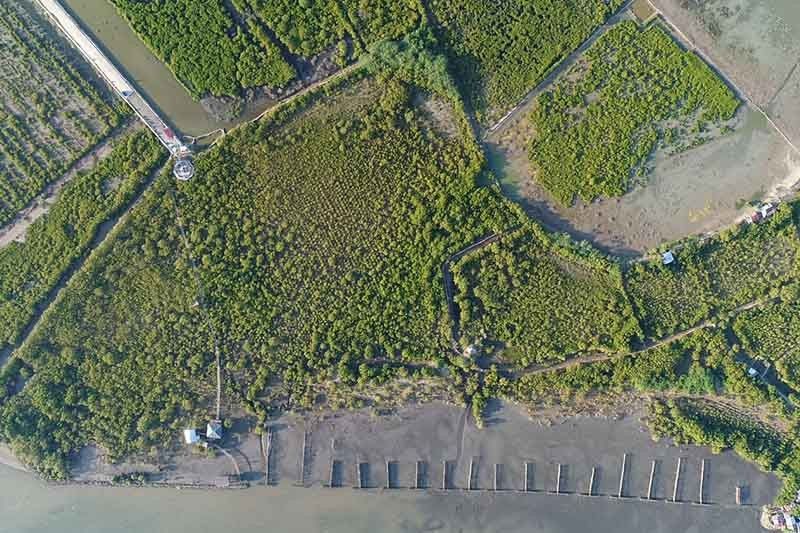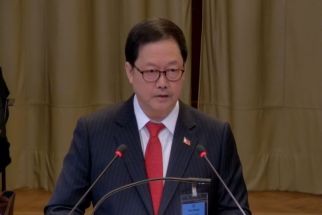Gov’t urged to revert unproductive fishponds to mangroves for climate fight

MANILA, Philippines — Environmental organizations and scientists called on the government to revert all abandoned, undeveloped and underutilized (AUU) fishponds to mangrove forests to fight climate change.
More than half of the Philippines’ extensive mangrove ecosystems, estimated at 450,000 hectares in 1918, have been lost primarily to fishpond conversion and other coastal development projects.
According to a University of the Philippines study, mangrove losses in the country were the second worst in the region, next to Myanmar.
In December last year, the groups sent a letter to Agriculture Secretary Francis Tiu Laurel and Environment Secretary Ma. Antonia Yulo-Loyzaga, emphasizing the importance of protecting and rehabilitating mangroves to enhance the adaptive capacity and resilience of communities and ecosystems to climate change.
Mangroves provide a range of ecosystem services, including coastline protection, carbon storage and sequestration, and provision of habitats for various species. Mangroves also support the livelihood of coastal communities.
“The law is clear that the grant of Fishpond Lease Agreements come with mandatory conditions, such as automatic reversion back to mangroves once the fishponds have been abandoned, or remain undeveloped or underutilized. However, the implementation of this provision remains slow,” Oceana Vice President Gloria Estenzo-Ramos said Wednesday.
The groups also noted inconsistencies in the implementation of existing laws and the policies issued by the Department of Agriculture-Bureau of Fisheries and Aquatic Resources (DA-BFAR) and the Department of Environment and Natural Resources (DENR) in managing AUU fishponds.
Fisheries Office Order 115 issued by the BFAR in March 2011 provides for an institutional framework to make abandoned fishponds as productive assets under a community-based management system that involves fisherfolk organizations and cooperatives.
Then in 2012, BFAR issued Fisheries Administrative Order 197-1 that sets out a process for cancellation of Fishpond Lease Agreements (FLAs) and promotes aquasilviculture stewardship contracts. Aquasilviture integrates aquaculture with mangrove forestry.
“We learned that FAO 197-1 is in the process of amendments as FAO 197-2. From the initial copy that we got, we found it to be all about fishponds or other aquaculture and nothing in the provisions are friendly to, or supportive of, mangroves,” said Dr. Jurgenne Primavera, chief mangrove scientific advisor of the Zoological Society of London.
“The attempt to include mangrove-friendly aquaculture failed in defining the metrics to ensure the survival and growth of these intertidal trees,” she added.
Primavera also called for a comprehensive inventory of all AUU fishponds, FLAs and other culture ponds as well as a national guideline on determining AUU fishponds.
Around 994 hectares of fishponds, both with and without FLAs, were reverted to DENR's jurisdiction, according to 2023 data released by BFAR. The fisheries bureau also identified 55 hectares of fishponds operating without FLAs.
- Latest





























